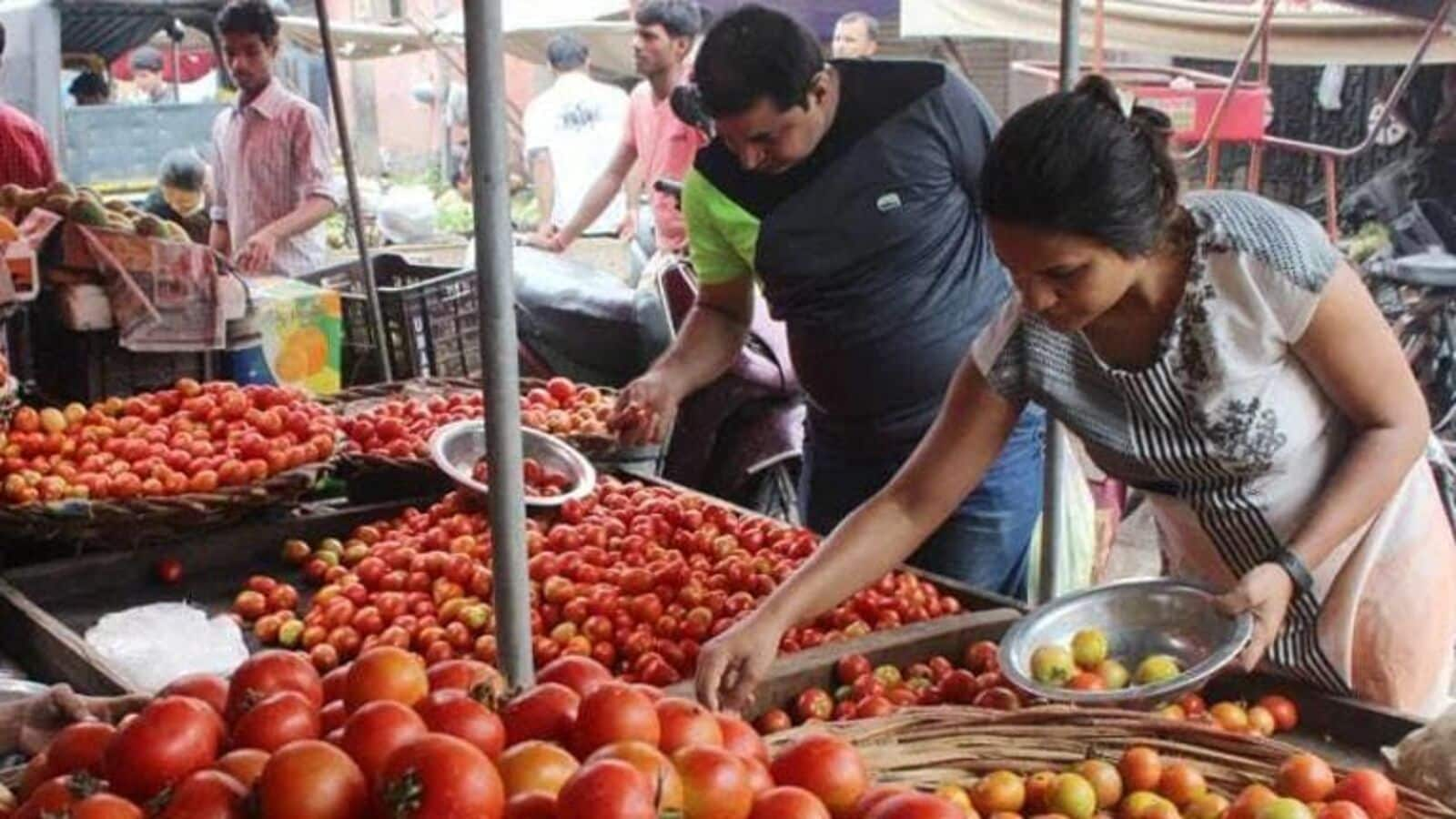Donald Trump is not India’s No. 1 problem. At least not right now. His hawkish trade policy may well emerge as an outsize threat to supply chains and global growth. But a bigger, more immediate worry for the central bank in Mumbai is tomatoes. Or, to be more specific, a 161% jump last month in tomato prices—due to late and heavy rainfall—from a year ago.
With potatoes and onions also becoming dearer, food expenses are out of control. The average cost of a home cooked meal in October—a standard fare of rice, roti, dal, veggies, salad and yoghurt—was the steepest in 14 months, according to CRISIL, an affiliate of S&P Global.
The chances of a December rate cut by the Reserve Bank of India (RBI) were dimming even before the US election. But with inflation spiking above the upper end of the central bank’s tolerance range of 2-6%, many analysts are ruling out monetary easing before the start of the next financial year in April. By which time, the next American president’s policies would have started to have an effect, particularly on the exchange rate.
Tomatoes now, and Trump later. Both may constrain RBI’s room for manoeuvre—how soon it can come to the rescue of a slowing economy, and how much help it can provide. High cost of living and low income growth are hollowing out consumer demand, especially in the larger metropolises.
But the dollar is spiking, and foreigners have pulled more than $13 billion from India’s expensive stock market so far this quarter. Lower Indian interest rates could aggravate the capital flight if a global trade war takes over from where domestic inflationary pressures ease off.
The US president-elect’s proposed import tariffs threaten to throw the world’s production networks into disarray. They are also expected to feed into American consumer prices and slow the pace of rate cuts by the US Federal Reserve.
A more severe impact on Chinese exporters may bring some benefits to Indian rivals, though any gains in market share may be short-lived if Beijing allows the yuan to weaken significantly against the dollar.
Besides, a tough-on-trade Trump won’t leave India unscathed. There’s plenty of reason to suspect that the incoming administration will push New Delhi hard on behalf of US technology firms. In 2019, Trump had cut some duty-free imports from India under a decades-old Generalized System of Preferences because of an alleged failure to provide “equitable and reasonable” access to its market.
That was just a light rap on the knuckles. This time around, the stakes are higher.
Elon Musk, whom Trump has anointed as the co-head of a new department of government efficiency, may have a direct interest in more than one such conflict around access. Musk’s Starlink is hopeful of offering satellite broadband services in India, for which it wants the government to set a fee.
New Delhi seems amenable to the idea, but dominant local tycoons Mukesh Ambani and Sunil Bharti Mittal are opposed. They’re demanding a competitive auction to ensure parity between satellite and terrestrial mobile spectrum. The lobbying is getting intense. Starlink’s ties to the US intelligence and military establishment make it a “wolf in sheep’s clothing,” a New Delhi-based think tank said this week.
And that may be just one area where powerful domestic players will want to protect their turf even as Trump puts pressure on New Delhi to open up the market. For years, Tesla and the Indian government have unsuccessfully courted one another over a proposed electric-vehicle factory. In March, India slashed its EV import duties, hoping to get the Tesla boss to visit. Yet, Musk was a no-show, and his India factory plan is all but dead.
Indian demand for battery-powered cars may be too insignificant at present to merit an all-out trade war. But that will change as the charging infrastructure falls into place. Still, Trump will need to be cautious to not press New Delhi too hard. Even China’s BYD is keen to make EVs locally; it’s waiting for warmer relations between Beijing and New Delhi for its joint-venture proposal to be approved.
A multi-cornered contest in which US tech leaders are lobbying Washington for access, but some Indian enterprises are pushing New Delhi for a restricted market while others are pitching on behalf of their Chinese partners, can get messy. Instead of inadvertently bringing business interests in the rivals closer together, it’s probably best if Trump lets India sort out the slowdown in its domestic economy first.
Thanks to India’s soaring income and wealth inequality, there will be plenty of EV buyers in the years ahead.
It’s the vast bottom of the pyramid struggling to afford decent meals that needs urgent attention via a rekindling of broad-based growth in jobs and incomes. Let authorities deal with tomatoes first. Trump and his tariffs can wait. ©Bloomberg
#Andy #Mukherjee #Indias #worry #tomatoes #Trump



